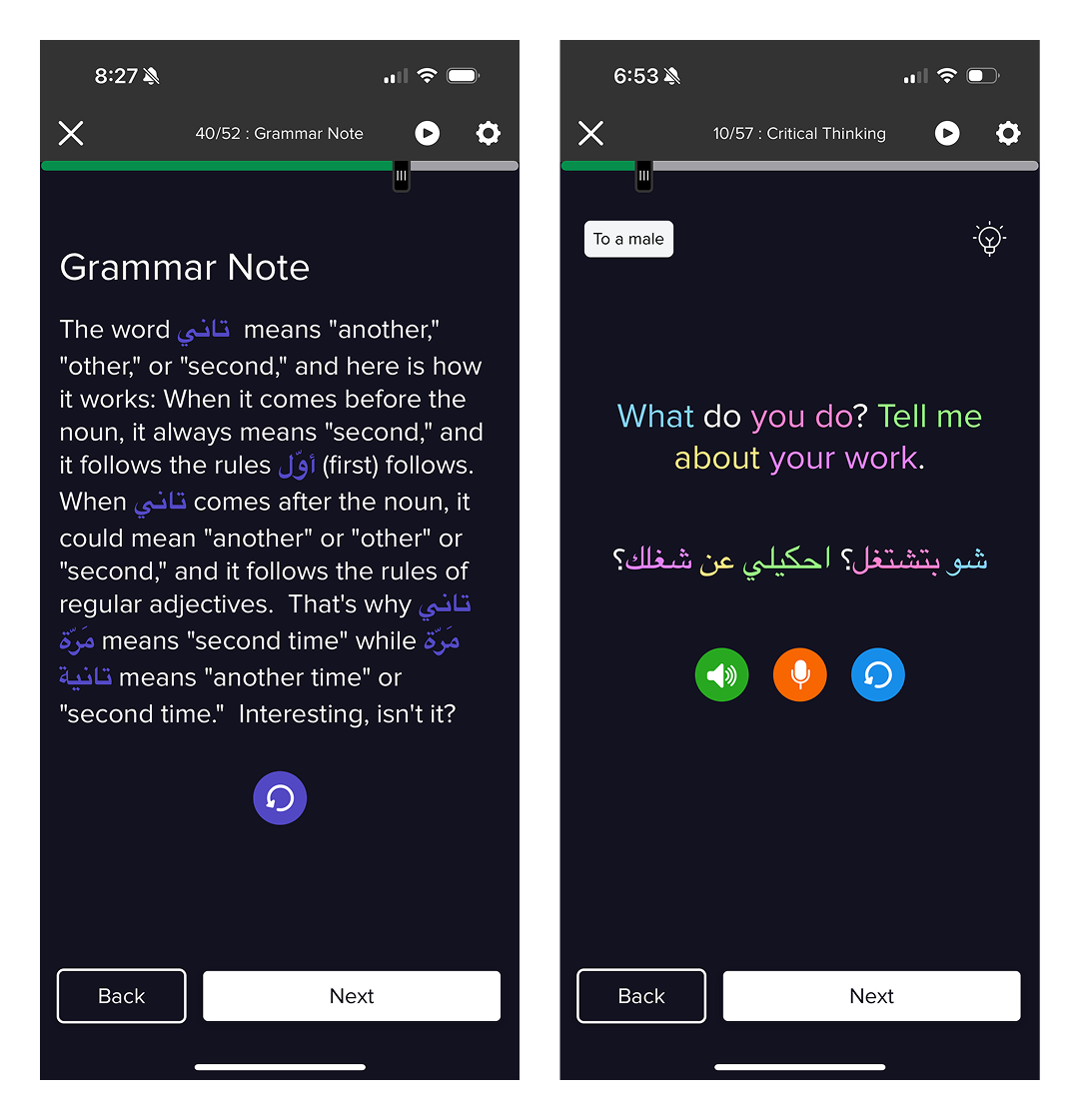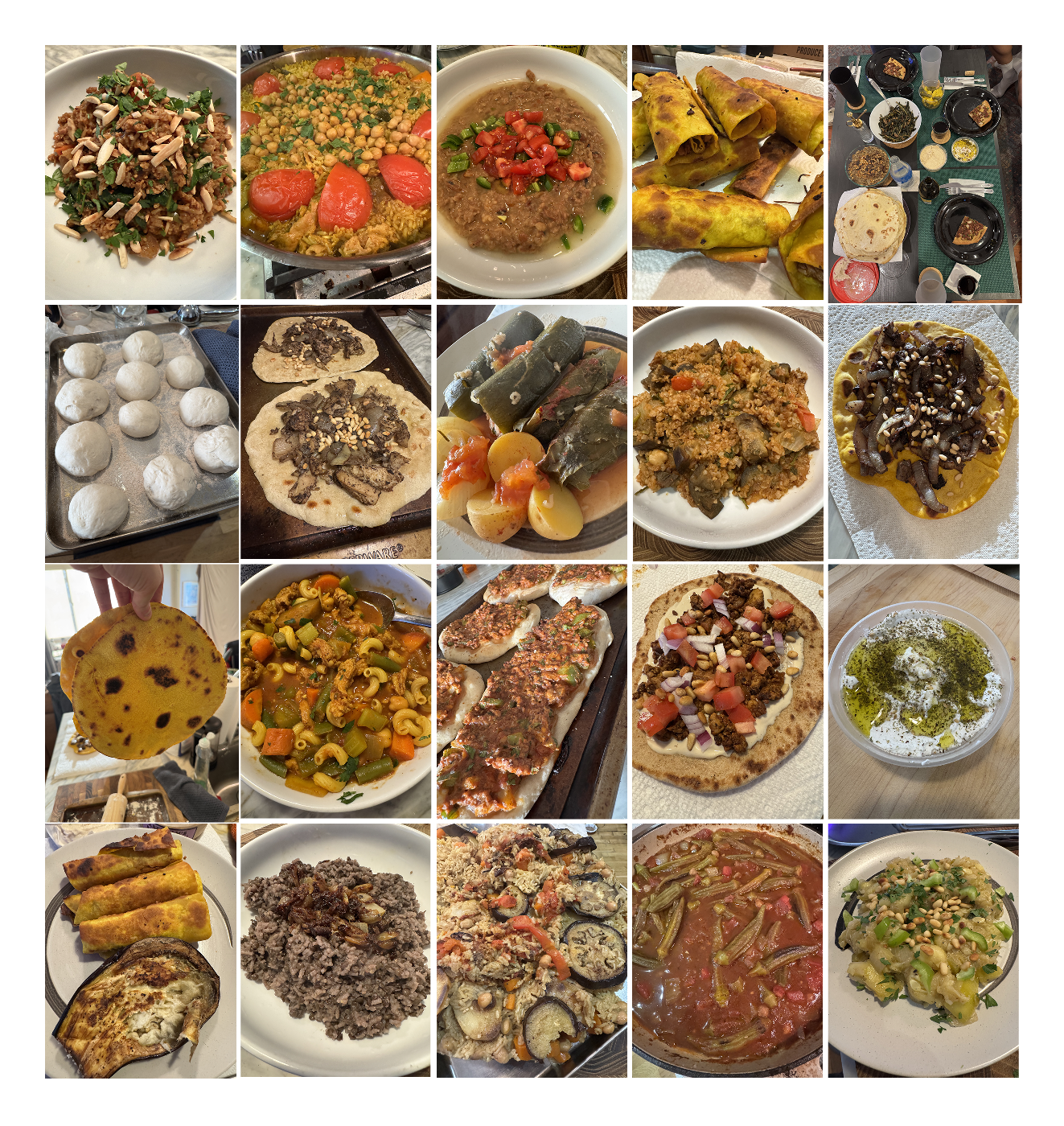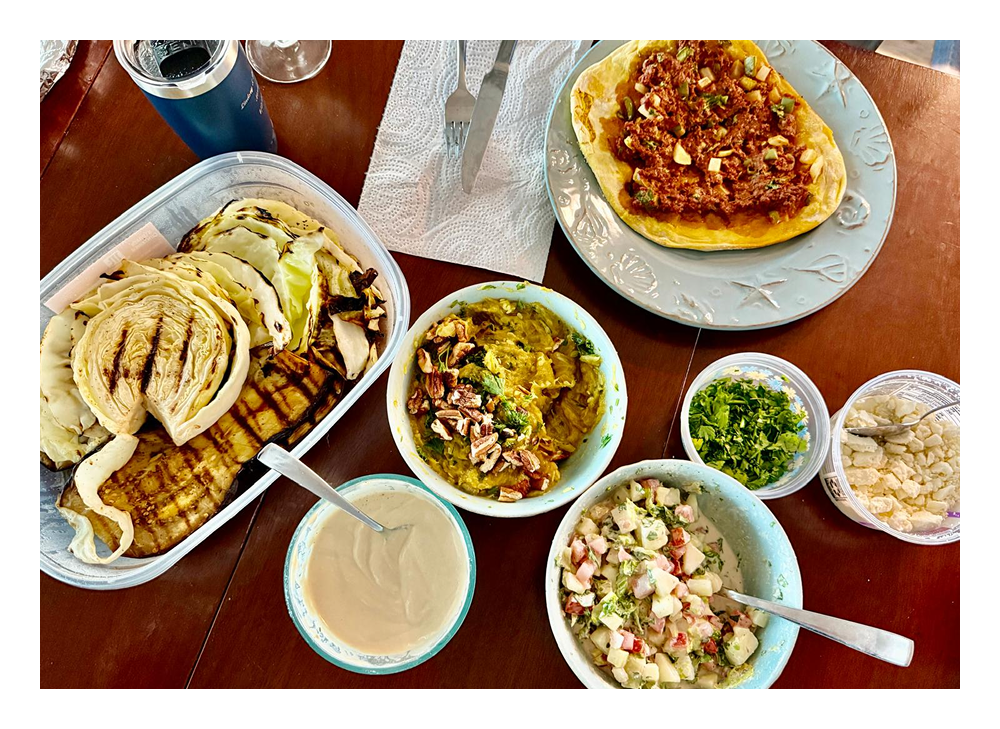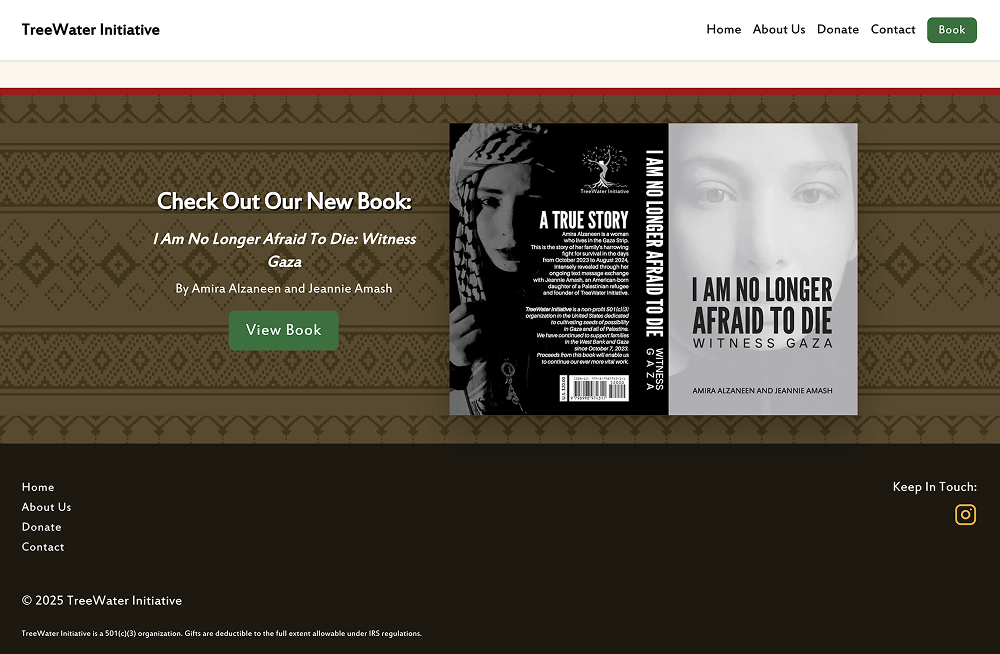3 Years of Learning Arabic

أهلًا وسهلًا! السلام عليكم⌗
Ahla wa Sahla! Sallam Alaykum
Hello and welcome! Peace be upon you.
As I write this I am a little into year 3 since I began my daily practice of learning the Arabic language. Little did I know when I started it would become one of the most rewarding experiences of my life.

How It Started⌗
I’ve been learning computer languages for 27 years, since I was 11. So many that I’ve lost count, but it’s in the range of 10-15.
When I was in school I was far more interested in computers, so I only took the minimum required foreign language coursework (in Spanish).
At some point in early adulthood I decided I’d like to change that and pick up another human language. But until COVID, it was one of things I never had time for prioritized.
I always assumed I’d go back to Spanish as a second language, but when I downloaded Duolingo that didn’t sound exciting for some reason.
I already had some interest in and curiosity about the middle east, so I thought Arabic would be an exciting and challenging choice.
According to Babbel (another language learning resource), Arabic is the 4th most widely spoken language in the world.
I didn’t want to work so hard learning a language that I’d rarely get to use, so while considering the options, I liked that with Arabic I’d have a higher chance of getting to use my second language.
I live in a neighborhood in south Brooklyn in between “Little Syria” to the north, and “Little Palestine” to the south. Little Palestine has one of the largest Palestinian and Arab communities in the US (right beside large communities of Italians, Greeks, and others). There is no shortage of middle eastern restaurants and stores nearby, all offering chances to practice as I work towards fluency.
The reaction I usually get when telling someone I’m learning Arabic is, “but isn’t that really hard?!”
Of course it’s a challenge coming from English! But that’s part of the appeal for me. As with any other kind of skill development, daily practice can make it feel less challenging and keeps the motivation flowing.
From the beginning my rule for myself has been to always do at least one lesson every day on Duolingo (about 5-10 minutes) in order to stay connected to what I am learning and keep that brain circuitry warm. Duolingo is also heavily gamified so that also helped me hold interest in the beginning.
Once I got started I enjoyed it so much that I’d spend upwards of an hour every day in the beginning which was both fun, but also really important for helping it stick. Nowadays I am closer to my minimum most days with learning new material, but I also practice in other ways I’ll share more about in a bit.
📚 What I’ve Learned So Far⌗
The beginning was all learning the alphabet, and reading and listening to random syllables so I’d later be able to sound out larger words.
After a few months I was feeling very motivated by how much I had already picked up and was hooked. I decided I would keep working through Duolingo’s entire course to build a good foundation in Fus7a (pronounced fus-Ha, with the “H” sound made from the back of the throat), aka Modern Standard Arabic (MSA).
MSA is the formal dialect of Arabic that is standardized across Arab-speaking countries, but is typically only spoken in the news media, government communications, and other formal settings. It is the modern form of classical Arabic in which the Quran is written.
Some make the analogy that MSA sounds to native Arabic speakers how Shakespearean English sounds to native English speakers in modern times. It is widely understood, but it sounds out of place and you will not encounter it in conversation with native speakers.
Besides learning a new alphabet, what makes Arabic so difficult is that there are around 25-30 spoken dialects (known as amiyya) throughout the Arab world.
They all have some overlap with MSA so they are not completely distinct. There is a lot of shared vocabulary and some differ mostly in the accent. For example, in Egyptian a hard g sound is used for ج where in other dialects it is pronounced as a j.
While many dialects are mutually understandable to native speakers, bigger differences occur with greater geographical distance.
In the Maghreb region (comprised of Morocco, Algeria, Tunisia, and Libya) accents sound much different than the Arabic spoken in countries further east or in the Gulf. Many say Moroccan is the hardest to understand compared to other dialects.
Iraq has it’s own dialect that differs from the Gulf states, and Sudan has its own as well. Egyptian Arabic is perhaps the most widely known due to its prevalence in film and music.
I knew I was most interested in the Levantine dialect, but within that there are even further variations (although smaller) between Lebanon, Syria, Palestine, and Jordan. And there are even more subtle differences between urban, rural, and Bedouin areas.
This may sound a bit overwhelming but it’s not much different than how in America we have various accents across the south, north, and Midwest for example. And in English there is also the British accent, Australian accent, etc. All are mutually understandable but sound different.
After just over a year I had completed Duolingo and was eager to begin studying spoken Arabic.
There are lots of other language learning apps, and I explored several before landing on Mango Languages. Duolingo provides a foundation and is great for learning the alphabet, but it really just scratches the surface. (I still do a daily lesson on it just to keep the counter going, and not to forget the bit of Fus7a I have learned.)
Mango has a course just for Levantine and the lessons encourage you to practice pronunciation and grammar as much as vocabulary and listening. You’re expected to already have some basic knowledge so you can dive right in and start forming sentences.

Mango also goes much deeper and has a ton of content. I am still working through it more than 2 years later, although that has a lot to do with my pace going up and down over time.
🗣️ Practicing with a Native Speaker⌗
Reddit has a great community for Arabic learners, r/learnarabic. In June 2024 I was browsing and came across a post from someone pitching conversation practice with a native speaker from Palestine.
For his safety and privacy, I will just refer to him as O.
I had already bookmarked some language exchange apps that I wanted to try, but I liked the idea of working directly with a tutor so they would get to keep more of the fee, and in this case, it would go towards helping a Palestinian support his family through the very difficult occupation they are living under.
I had no idea how it would go but wanted to give it a try so I booked a lesson…and it turned out to be one of the best decisions I have ever made!
O taught himself English and speaks very well, so that helped break the ice and of course made practicing with him more approachable. I ended up booking weekly sessions for the next several months, and over time that developed into one of my closest friendships. I have learned so much more than just some of the language from him.
We communicate mostly through video calls on WhatsApp, and I’ve had the opportunity to meet much of his family over the past year as well. That’s been great practice for basic conversation. It’s usually a fun surprise for them when they realize I, as an American, can speak (somewhat) with them in their language.
💖 Beyond The Language⌗
As an autistic person, I don’t typically do things half way — I’m either in, or I’m out. That means when I become interested in something, that interest goes deep. That’s where the term “special interest” comes from.
What started as learning a new language has developed into a full blown special interest that has led me to a satisfying intellectual challenge, new relationships, a love for middle eastern and Palestinian cuisine, a deeper understanding of current and historic events in that part of the world, and perhaps my favorite part, tons of new music that I love listening to despite not understanding most of the lyrics.
🥗 Food⌗
I really enjoy cooking, and O has taught me several traditional Palestinian recipes. We often cook meals together over WhatsApp. He is a baker by trade, and has taught me several delicious varieties of bread recipes including the classic khubez (what we know in America as pita bread), sajj, and my favorite, taboon.

We’ve also made dawali (stuffed grape leaves), sfeeha (a flatbread pizza with a spicy beef topping), mafghoussa (a chilled zucchini dip), hindbeh (sauteed dandelion greens), mujaddara (rice and lentils), mbakbaka (a tomato broth soup with macaroni and veg), arrayes (stuffed, fried beef rolls), msakhan (taboon bread topped with sumac onions and chicken), maqloubah (layered eggplant, potato, tomato, and rice that is flipped upside down before serving), and more.

I recently returned from a trip to visit with my parents in North Carolina. I taught my mom how to make the dough for taboon bread, and treated them to a meal of sfeeha flatbreads, salata b’tahina, mafghoussa, grilled eggplant and cabbage.
Food and family are two of the biggest components of Palestinian culture, and I was excited to share that with my family here.
 Sfeeha, mafghoussa, salata b’tahina, grilled eggplant and cabbage, and lemon tahina sauce.
Sfeeha, mafghoussa, salata b’tahina, grilled eggplant and cabbage, and lemon tahina sauce.
Recently I was browsing a big sale at my local Barnes & Noble and grabbed this book of traditional Palestinian recipes called “Bethlehem”. Little did I know it would lead to an interesting small world kind of encounter.
While looking through the book with O, I saw a page about Sebastia, a village where he has family. There was a picture of an elderly woman from Sebastia and as it turns out, he immediately recognized her.
She is known as Imm Sammi (meaning mother of Sammi). A couple of days later he was in Sebastia visiting family and saw her. They called me in a video call and to my surprise, there she was!
She remembered being photographed but didn’t know she was in a book, so it was a nice surprise for her as well.

🍉 The Harder Parts⌗
The watermelon has become a symbol of Palestine because its colors — red, green, black, and white — match those of the Palestinian flag. During periods when displaying the flag was banned by the Israeli Occupation, people used watermelon imagery as a subtle act of resistance. Today, it remains a cultural symbol of solidarity and identity.
Needless to say, life in Palestine and the surrounding area is very difficult, now perhaps more than ever. Through many conversations with O as well as my own research, I have learned a great deal about the occupation and apartheid Palestinians live under, all the way back to the origin of conflict between Israelis and Palestinians. They refer to that time as the nakba (catastrophe), when the first mass expulsion of Palestinians from their homeland took place.
Sadly, that expulsion is ongoing still today in the West Bank, where O lives. Israeli settlers continue to steal land, burn homes and trees, and push Palestinians out of their homes (often with deadly violence) on the Palestinian side of the giant separation walls Israel has erected. These attacks have only increased in recent years and have been largely overshadowed in the media by the fighting in Gaza and surrounding countries.
Learning the history, watching the tragic events of October 7th, 2023, and since then, the almost 2 years of unimaginable destruction, genocide, economic isolation, starvation, has been very, very heavy to say the least.
I feel obliged to disclaim this song is not anti-America despite what the cover image may appear to portray. The refrain of this song is “telk qadeya, wa telk qadeya” which translates to “this is one issue, and that’s another”. The lyrics criticize the many progressive, human rights causes that are prominent in the West, while many of those supporters and Western media remain silent and fail to see the humanity of civilians in Palestine. For a deeper synopsis, check out this review.
Growing up in America I had pretty much no education in the history of that part of the world. It has been a very eye opening experience coming to an understanding of both the backstory of what led to this and previous wars, as well as how deep America has been involved all the way back to the very beginning through its unwavering support of Israel.
I do not want this essay to become too political so I’ll leave it there for now. But I do hope the end of this deadly, dehumanizing occupation comes to an end sooner than later, and that a new era of healing and peace comes to all those who are suffering under it.
🎶 Music⌗
The music has been one of, if not my favorite facet of middle eastern culture I have explored. From deeply moving songs about the realities of how Palestine is portrayed in America and other Western countries to modern songs by young, up and coming Arab artists from Palestine, Lebanon, Egypt, Sudan, Morocco and more, I’ve found no shortage of tunes that I now listen to on repeat.
Some of my favorite artists include Saint Levant (who seamlessly blends an impressive combination of Arabic, English, and French), Cairokee, Rashad Combal, Zeyne, Bayou, Dafencii, Elyanna, and Lina Makoul.
I continue to compile a playlist of my favorite tracks on Spotify and invite you to give it a listen!
What’s Next?⌗
Volunteering with TreeWater Initiative⌗
I was introduced by O to a close friend of his, a Palestinian American woman named Jeannie earlier this year who runs a nonprofit called the TreeWater Initiative based here in the US. (It turns out Jeannie is also the mother of Roland, who made the reddit post I responded to and helped O find clients for his Arabic lessons.)
In its first few years, TreeWater focused on planting trees and opening greenhouses for economic and community development across Gaza and the West Bank. Now they have shifted to raising money to support Palestinian families during this difficult time as well as bringing awareness of what life is like for Palestinian civilians living under occupation and in a war zone. They recently published a book co-authored with a young woman and talented writer from Gaza who shares her first-hand story of struggling to survive the war.
I appreciate and share the dedication they have to these causes, so I was happy to put my skills in web development to good use when Jeannie asked if I could help out by building a site to market the new book and organization.
I recently wrote another post with more detail about that project, and I’m excited for the new features we plan to develop in the coming months.

Coming Soon: LearnArabic.cards⌗
Another side project I have recently started working on is an Arabic flash card app of my own. It won’t be lesson-based app like Duolingo or Mango.
Instead it’ll be all flash cards with intention of being a companion experience designed for intermediate learners like myself and will have vocabulary, common expressions and responses, and short sentences.
It is in the early stages of development right now and not in a shareable state, but I am eager to get it ready to share hopefully in the near future. Mostly, I’m excited to use it myself as I continue studying the language!
Developing Fluency⌗
Besides that, I continue with daily practice towards fluency. I expect that will take at least another 2-3 years to achieve. And after feeling really comfortable with spoken Arabic I would like to pivot back to studying Fus7a.
The beauty of having “special interests” is they last for a long time. I am not discouraged by only being able to carry basic conversations after 3 years of studying, and knowing there will be more years ahead to get to that point. I know quite a bit of vocabulary by now but still find pulling it together into sentences to be a challenge.
Because my interest has gone much broader than just the language, I am not looking towards a particular end goal — I am thoroughly enjoying the ride!
!شكرًا على القراءة، هيك بكفي لهلّق. مع السلامة⌗
Shukran ala alqira’a, heik bikaffi lahalla’. Maasalameh!
Thank you for reading, that’s all for now. Goodbye!
